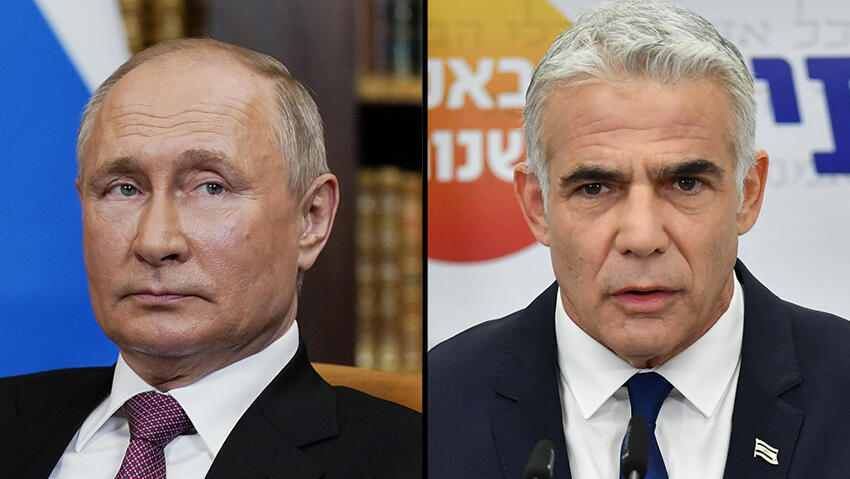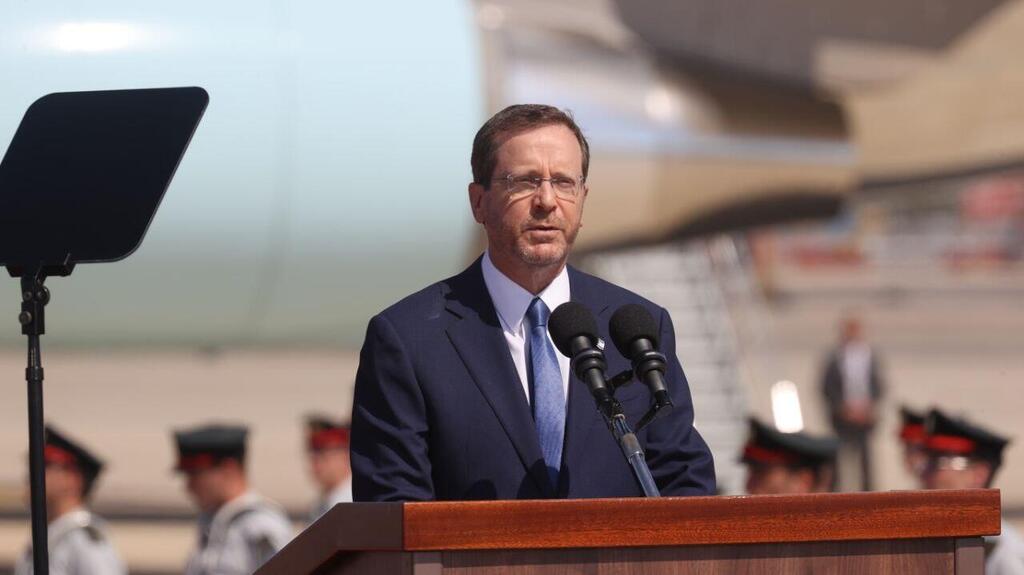It started with Israel's attempt to flex its muscles at Russia - mostly muscles of the tongue - continued with government mulling harsh sanctions against Moscow, and ended, or at least it seems that this is how it will end, with the Jewish state walking away with its tail between its legs.
The only question now is why was this farce of a show-of-strength performance necessary in the first place?
3 View gallery


Russian President Vladimir Putin and Prime Minister Yair Lapid
(Photo: AP, Yoav Dudkevitch)
The Kremlin, and not for the first time, last week expressed dissatisfaction with the conduct of the Jewish Agency in Russia. In the past many experts have claimed, also not for the first time, that this non-profit is redundant, especially in Russia. Its damage outweighs its benefits, and the only plausible reason to keep it afloat lies in the fact that it offers perks to the people of Solomon.
In any case, the activity of the Jewish Agency is not a national interest. Certainly not one that would force Prime Minister Yair Lapid to slam the Russian Justice Ministry, and call its intention to terminate the agency a "grave event".
If this is not enough, Lapid also issued a public warning to the Kremlin, convened meetings with several dozen ministers, and directed them to formulate a list of potential punitive measures against Russia - should it rule to dissolve the branch in Moscow later this week.
Let us be real for a moment, what kind of severe sanctions can the interim premier and his ministers impose on Moscow that would drop Russian President Vladimir Putin to his knees? The same Putin who has the entire Western world imposing non-stop sanctions against him and his regime.
Officials close to the premier even took it one step too far, briefing the media that Lapid has adopted an "aggressive stance" against the Kremlin, unlike his predecessors, claiming it to be "the only effective policy."
A moment after the empty declarations - almost literally - the wheels have begun to turn.
Anyone who knows a thing or two about the matter, and is not bound by the shackles of the upcoming elections, said it was time to calm the rhetoric and lay low.
Starting from Defense Minister Benny Gantz, Aliyah and Integration Minister Pnina Tamano-Shata, Finance Minister Avigdor Liberman, and even President Isaac Herzog who said "it is better we stay quiet." Plural, for those who didn't notice.
Herzog was also the one who was called up for the mission that is now defined by Jerusalem in an effort to "taming the tensions".
Now, it appears have come to their senses and realized this matter should be resolved in a behind-the-scenes and discreet manner. Officials, however, still argue that if the termination of the Jewish Agency in Moscow goes unsanctioned, it will impact the Aliyah wave from Russia - to make sure we know all the muscle flexing earlier was not for nothing.
To sum up, there are three things Israel can learn from this fiasco:
Firstly, instead of attempting to calm the already wounded "Russian bear" - following the unsuccessful war in Ukraine - Israel decided to poke it, shooting itself in the foot in the process.
Secondly, if there was no choice and Israel had to have taken such an aggressive stance, the matter should have been conducted quietly. Past experiences have shown that Putin always sticks to what he perceives to be a Russian interest, and the thought that a little more force would knock him off track is foolish at best.
Thirdly and finally, with all due respect to Israel and Lapid, the thought that Putin - who is neck-deep in a war that may turn out to be an existential threat to his regime - is really concerned about who wins the Israeli elections in November is ridiculous. Israel is not the United States, and Lapid is not its president.



